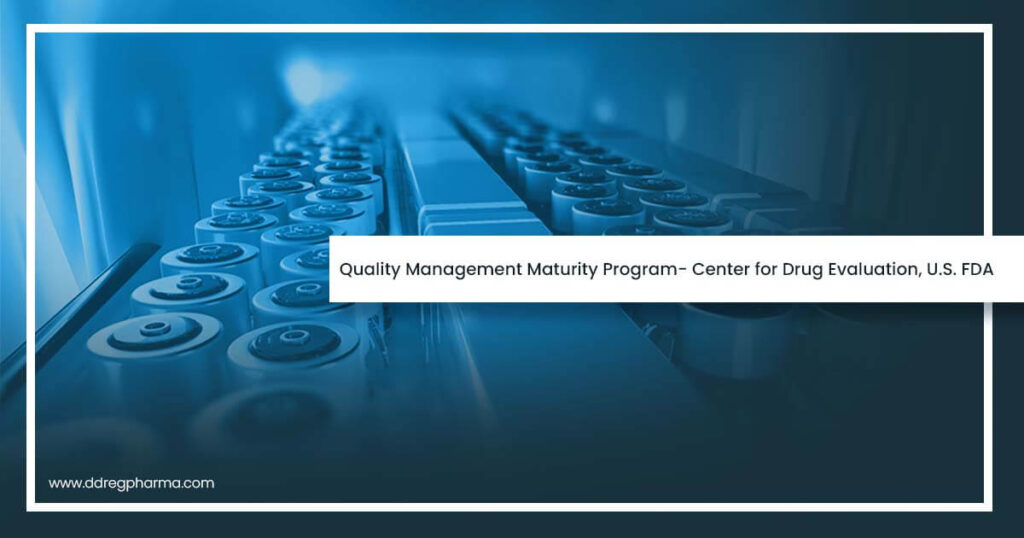The pharmaceutical industry is one that is constantly growing and simultaneously facing challenges in Quality Management Maturity Program in US FDA. The onset of the pandemic has brought new obstacles that require immediate attention and innovative solutions.
Quality assurance (QA) is a routine measure that ultimately ensures patient safety by making sure all pharmaceutical products are of high-quality and compliant with regulatory and safety requirements.
Needless to say, QA is an area within the pharmaceutical industry that has experienced a substantial amount of disruption associated with the onset of the pandemic.
However, exploiting technology for advanced and synergistic ways of working has gradually provided solutions for QA concerns . Ultimately, it’s the push from internationally renowned agencies, like the FDA or EMA, that provide the direction that the industry needs.
FDA Launches REMS Public Dashboard to Enhance Transparency and Data Access
The Office of Pharmaceutical Quality (OPQ) at the Center for Drug Evaluation and Research (CDER) of the U.S. FDA has announced that they will soon implement a framework that rates the maturity of quality management for manufacturing sites.
The aim of this framework is to promote the pharmaceutical manufacturing sector to be more flexible, efficient, and agile in producing high-quality and compliant products and encourage transparent ways of working.
The FDA defines Quality Management Maturity (QMM) as the “state attained by having consistent, reliable, and robust business processes to achieve quality objectives and promote continual improvement.”
. A part of establishing the QMM is determining the extent of ICH Q10 implementation by a pharmaceutical manufacturer.
Designing Effective Pharmaco-Epidemiological Studies with ICH’s M14
Transparent rating systems can provide information about the manufacturing sites that customers purchase their pharmaceutical products from.
Furthermore, a transparent rating system could assist manufacturers in identifying ways in which they can improve the pharmaceutical quality system they have in place.
Interestingly, researchers conducted a study that involved 200 pharmaceutical manufacturing organizations across the globe that communicate the positive impact that a QMM had.
This includes the ability for an organization to deliver to its customers. Various stakeholders are also impacted by a QMM rating system with respect to purchasers, pharmacies, patients, providers, and payors.
However, CDER faces challenges regarding the definition of QMM ratings and their scope especially as different stakeholders have different meanings for ‘pharmaceutical quality’.
Secondly, many stakeholders do not incorporate QMM in their quality-related decisions so CDER will need to persuade purchasers and communicate the advantages of a QMM rating system in decision-making.
Additionally, the CDER will require support from purchasers in understanding their supply chain. As per the CDER Whitepaper on Quality Management Maturity, the key elements of a QMM rating program include ensuring the following:
- appropriate quality culture within the organization
- QMM assessment tools are objective and consistent for all manufacturing sites
- frequent validation of the QMM assessment tool
- incentives are clearly communicated to achieve higher QMM scores
- maximum transparency
A QMM rating system will benefit stakeholders and FDA as it will provide more information about manufacturing sites and their quality management practices.
This would ensure better overall regulatory oversight and better performance-based regulation rather than only negative outcomes. Ultimately, the CDER QMM framework will facilitate transparency that would enable the market, and thus the industry, to grow.
Navigating EU Classification Standards for AI in Medical Devices and Diagnostics
Pharmaceutical manufacturers associated with a high QMM could focus on continuous improvement and thus adopt technological advances to make quality manufacturing within the industry more robust.
Manufacturers with high QMM ratings will inevitably be reputed within the market, and purchasers will obtain confidence and gain insight into the product supply chain that they wish to purchase.
The QMM program is a strong step forward in enhancing confidence in pharmaceutical quality management. Further reading:
[1] Quality improvement during the Covid-19 pandemic
[2] FDA: CDER Quality Management Maturity
[3] Understanding how the public perceives and values pharmaceutical quality

